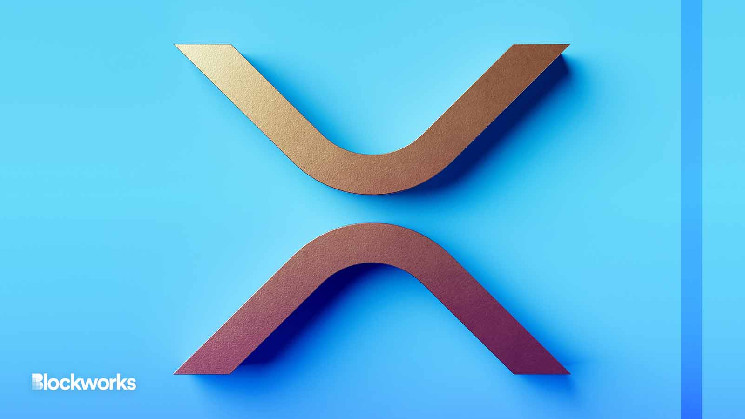As Ripple Labs remains locked in a lawsuit with the SEC about whether its native token is a security, XRP is not yet part of its newly launched liquidity hub.
While some have questioned whether the decision is a signal the company is bearish on its asset amid a lawsuit with the SEC, executives at the crypto company clarified the reasoning for excluding the asset Monday, adding that the omission could be temporary.
Ripple revealed its intention in November 2021 to launch Liquidity Hub — a product using smart order routing to source digital assets at certain prices from market makers, exchanges and OTC desks. The hub would offer access to XRP, bitcoin (BTC), ether (ETH), litecoin (LTC), ethereum classic (ETC) and bitcoin cash (BCH).
Ripple said in a blog post last week its liquidity pools would cover BTC, ETH, LTC, ETC, BCH, as well as US dollars (USD) and stablecoins USD Coin (USDC) and tether (USDT).
“XRP will be evaluated along with other tokens for support within the product,” the blog states. “We look forward to supporting XRP as it receives regulatory clarity in the US.”
The SEC alleged in 2020 that Ripple Labs and two of its executives raised more than $1.3 billion in 2013 through what it deemed to be an unregistered security offering of XRP. The case is ongoing.
An SEC complaint against Bittrex filed Monday named six tokens listed on its platform — DASH, ALGO, OMG, TKN, NGC and IHT — as securities.
Regulatory clarity is important to the enterprise customers for which the hub was designed, Ripple Chief Legal Officer Stuart Alderoty tweeted Monday. He added that the low liquidity for the asset in the US was another reason XRP wasn’t included.
“Our product team has been very clear — [Liquidity Hub] was built to access all kinds of crypto liquidity, not just XRP,” Alderoty tweeted. “Our target [Liquidity Hub] customers — today mainly institutions in the US — want access to a variety of tokens like BTC, ETH, and stablecoins.”
The chief legal officer added that Ripple’s on-demand liquidity (ODL) product has for years, and will continue to, use XRP.
Brad Chase, Ripple’s head of liquidity products, told Blockworks in an email that Ripple is “keen to support XRP” for Liquidity Hub “when we can provide a good customer experience, and based on customer demand.”
Taking the cautious approach?
Attorney John Deaton, a partner at Deaton Law Firm who led a class action lawsuit against the SEC alleging its enforcement action against Ripple harmed XRP investors, said in a Twitter Space Monday that he wouldn’t blame people for viewing Ripple’s decision as “a slap in the face.”
Still, he added, the decision for Ripple to exclude XRP from the Liquidity Hub wasn’t surprising, and likely makes legal sense.
“They’re offering liquidity for businesses,” Deaton said. “So it isn’t that Ripple isn’t still believing that XRP is not a security. [It’s about] what are these businesses’ appetite for risk and are they going to include or engage when there’s this one token that’s being hotly debated and contested as being a security?”
Deaton added that including XRP in Liquidity Hub could have spurred the SEC to try to shut down the offering.
“It just removes any unnecessary risk when you’re launching a new product line,” he said. “To me, it’s one of those things where the conservative approach is going to win the day.”
The ongoing lawsuit with the SEC has not stopped Ripple Labs from pouring billions of dollars into buying back the XRP token on secondary markets, a Blockworks analysis of the company’s quarterly reports found.
Ripple has spent nearly $8.4 billion to buy XRP since the beginning of 2021 as a way to protect the token’s markets and its customers, the disclosures show.
 blockworks.co
blockworks.co
